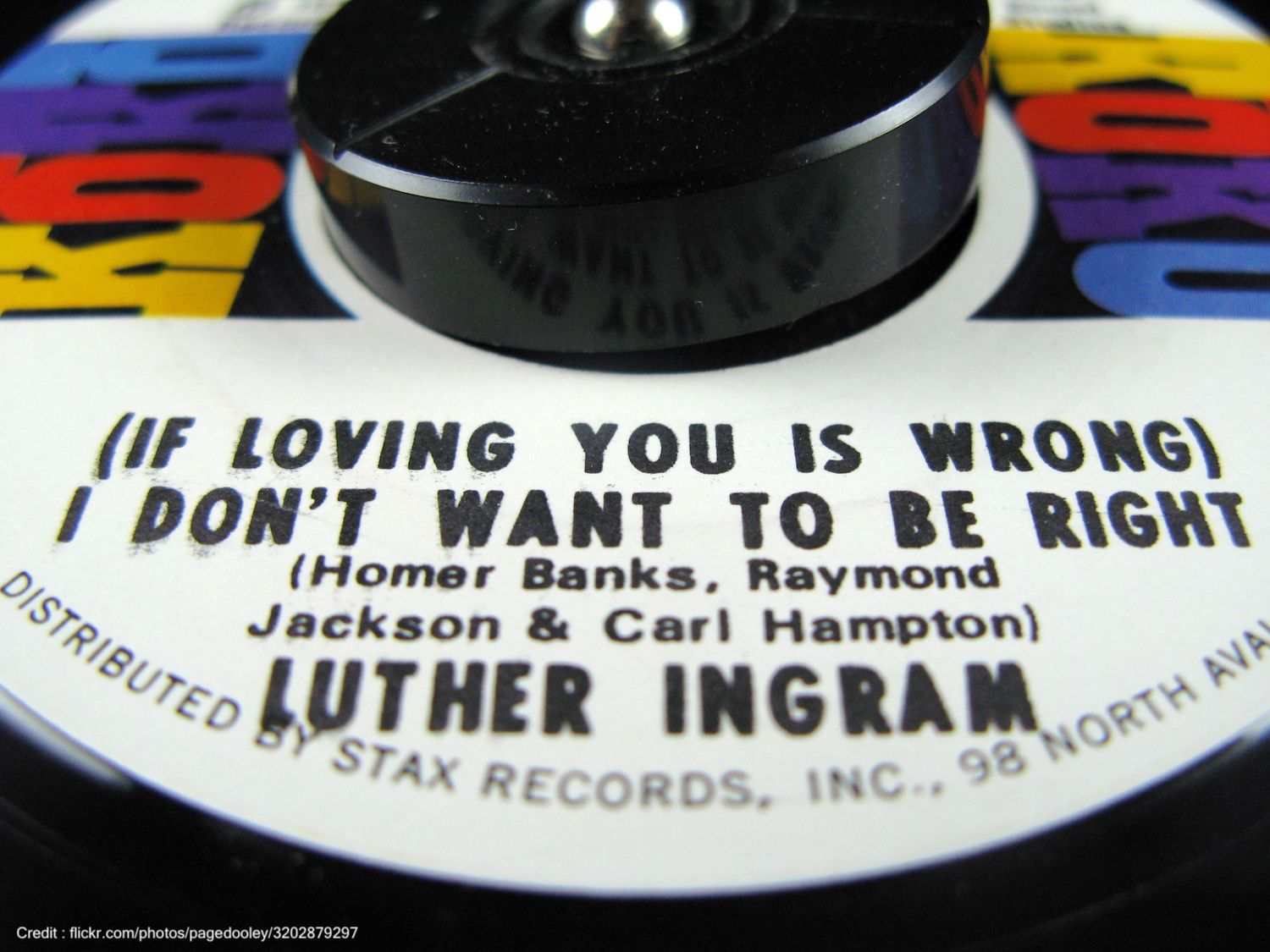You’ve known for a while that something isn’t right about your relationship, but you can’t put your finger on exactly what it is. If your relationship is making you doubt yourself and your perceptions, you may be experiencing emotional abuse known as gaslighting.
In the classic 1944 film Gaslight, an accomplished, successful woman is driven to believe that she is losing her mind by a nefarious new husband. As she is further manipulated and isolated, she begins to fear her emotional responses and even physical perceptions of the world are not real, bringing her dangerously close to a total breakdown. This movie represents the first time this type of psychological abuse is depicted in film, and is the inspiration for the term “gaslighting.”
Gaslighting is a particularly insidious form of emotional abuse because it is often subtle and begins gradually. By the time it becomes more pervasive and obviously controlling, the person experiencing gaslighting has already begun to doubt themselves and their perceptions, making it harder to see this behaviour for what it is. Being familiar with the signs of gaslighting is important in identifying what is happening and ultimately getting out of a toxic relationship.
What is Gaslighting?
Gaslighting is a form of emotional or psychological abuse where you are manipulated into questioning your own thoughts, feelings, judgements, and reactions. Extreme gaslighting can make people feel as if they no longer know who they are, and begin to lose their grip on reality. Gaslighting is particularly effective when it is done in tandem with isolation, so that the person experiencing it has little ability to cross-check what is happening with others.
What are Signs that You are Experiencing Gaslighting?
Gaslighting often makes you have a general sense that something is wrong, but it may be difficult for you to pinpoint exactly what it is. Knowing some common reactions to gaslighting can be useful in identifying if this type of manipulation is occurring in your relationship. These can include:
- Feeling like you can’t do anything right in your relationship
- Feeling like you are constantly walking on eggshells with your partner
- Not recognising the person you are anymore; feeling like you’ve changed
- Always apologising for things
- Being more anxious and less confident than you used to be
- Having more trouble making decisions
- Constantly second-guessing your responses and reactions
- Feeling like you are oversensitive or being told that you are by your partner
- Feeling isolated from friends and family
- Withholding information about your relationship from others to avoid criticism
- Making excuses for your partner’s behaviour
- Feeling hopeless and joyless
When you are being gaslighted, your partner will be adamant that whatever you feel and their reaction to that, no matter how negative or hurtful, is totally your fault.
Gaslighting in Action
Still not sure if what is happening to you is gaslighting? You may recognise some of these scenarios:
- Challenging your memory: Your memory of your arguments, partner’s preferences, or what you’ve committed to is supposedly wrong. Your partner may say things like, “I never said that, I don’t know what you’re talking about,” or “I would never do something like that, you’re exaggerating.”
- Reversing every argument, every time: You are frustrated over something in your relationship, and you try to bring it up respectfully with your partner but are immediately met with denial, criticism and blame. Your partner may say things like, “You’re always overreacting,” “It’s your fault that this happens, it has nothing to do with me,” “You never makes sense when you talk, I don’t get what you’re saying,” or “The way you’re talking is so rude and out-of-line, I’m not having this conversation with you.”
- Telling you or implying that others think little of you: Your partner has a way of letting you know that others don’t like you – even if that isn’t the case. They may tell you that others dislike you or are talking about you behind your back. They might say something like, “Wow, I think you really offended our waiter with the way you ordered,” despite no indications of such an offence, or “I’d invite you out tonight, but Jay said he wouldn’t come if you were there.”
- Attacking your character: Gaslighters will try to tear down who you are, and so criticism is intensely personal and about fundamental qualities that you cannot change. This criticism is not constructive and doesn’t lead to conversations where both of you gain further understanding of each other. It is destructive and can only end in you accepting that your sense of self is flawed and problematic. Your partner may say things like, “The way you talk is so annoying, I can’t listen to it,” “You always take things the wrong way,” or “I can’t believe you’re so sensitive/dramatic/emotional all the time.”
Why Do People Gaslight?
Ultimately, gaslighting is about control, gained through unbalancing, confusing and degrading another person to the point where they feel dependent upon the gaslighter. The reasons people gaslight vary widely, and it is possible that some gaslighters may be unaware that they are doing it. It may be a learned behaviour from their family or other important social relationships, or it could stem from different types of personality disorders, particularly those that engender perpetual inner anxiety and a need for control.
Other gaslighters may be more keenly aware of their manipulation, and will use it consciously to sow dependency and compliance. Regardless of the reasons behind this behaviour, the person gaslighting has a responsibility to acknowledge and alter it. If this is not possible, then the relationship needs to end.
Breaking Free of Gaslighting
If you have realised that you are in a relationship characterised by gaslighting, and your partner is denying that this is a problem, then the next step is to begin to disentangle yourself from the relationship. There are a few key points to remember when you begin to make this break:
Be aware they will try to suck you back into the relationship
It is important to remember that when you make moves to leave, your partner will likely engage in “hoovering,” meaning they will find a number of ways to try and suck you back into the relationship. Generally this involves saying all the things that you have been waiting for, making efforts to communicate positively, and even getting your family and friends in to advocate for them (assuming those bridges have not been totally burned). This is yet another manipulation, and soon after you return things will return to the way they were, and you will once again be blamed for it.
Limit contact as much as possible
The persistent attempts to draw you back into the relationship are why it is best to try and cut off all contact with the gaslighter in order to give yourself some space to regain your bearings and clear your head. Block numbers, emails, and texts. If your ex finds another way to contact you, don’t respond. Tell friends and family you are not interested in relayed messages from your ex-partner. If you have children, get advice from a legal or psychological professional on how to move forward.
Reach out for professional support
Not only are you trying to extract yourself from a deeply dysfunctional relationship that has caused you trauma, you are also trying to regain familiarity with yourself. It can take some time to begin to trust your instincts and feel confident in your interactions again. Talking this out with a therapist can be both healing and reassuring as you move forward, putting you in a strong position to take on whatever comes next.
Coming Back Even Stronger at The Dawn
The Dawn Wellness Centre and Rehab in Thailand is a mental health retreat that devotes unlimited attention to our clients, focusing on holistic personal growth and recovery. Our Western-trained psychotherapists will work with you to develop a treatment plan that specifically caters to your needs, fortifying your path to healing. The Dawn offers a seamless blend of effective psychotherapies with proven wellness practices like fitness training, yoga, mindfulness meditation, and massage to strengthen your mind and your body. You’ll leave The Dawn with a better understanding of yourself, and a renewed zeal for all that life has to offer.
We’re here for you, 24/7. Call The Dawn today to learn more about how we can help you reconnect with yourself.
Related Posts
 The Ultra-Toxicity of Trauma Bonding: How it Happens, and How to Leave
Are you exhausted, embarrassed and depressed by your relationship? Trauma bonds have a way of slowly eating away at your sense of self, leaving you feeling completely lost and unsure...
The Ultra-Toxicity of Trauma Bonding: How it Happens, and How to Leave
Are you exhausted, embarrassed and depressed by your relationship? Trauma bonds have a way of slowly eating away at your sense of self, leaving you feeling completely lost and unsure...
![7 Things Never to Say to a Person with Depression [infographic]](https://thedawnrehab.com/wp-content/uploads/2020/03/7-never-say-to-depression-cover.jpg) 7 Things Never to Say to a Person with Depression
The impacts of depression on someone you love can be both concerning and baffling, particularly if you’ve never experienced it. Knowing how to help – and what not to do...
7 Things Never to Say to a Person with Depression
The impacts of depression on someone you love can be both concerning and baffling, particularly if you’ve never experienced it. Knowing how to help – and what not to do...
 Love Addiction: 8 Signs You’re in a Codependent Relationship with an Addict
If you’re in a relationship with someone who suffers from addiction it can be easy to blame them for all the things that are going wrong in your life. Your...
Love Addiction: 8 Signs You’re in a Codependent Relationship with an Addict
If you’re in a relationship with someone who suffers from addiction it can be easy to blame them for all the things that are going wrong in your life. Your...
 Under Suspicion: How to Manage Paranoid Personality Disorder in a Relationship
You have a partner who is fun, loving and smart, but is always questioning your motives and your loyalty. You are starting to wonder if they will ever trust you....
Under Suspicion: How to Manage Paranoid Personality Disorder in a Relationship
You have a partner who is fun, loving and smart, but is always questioning your motives and your loyalty. You are starting to wonder if they will ever trust you....






